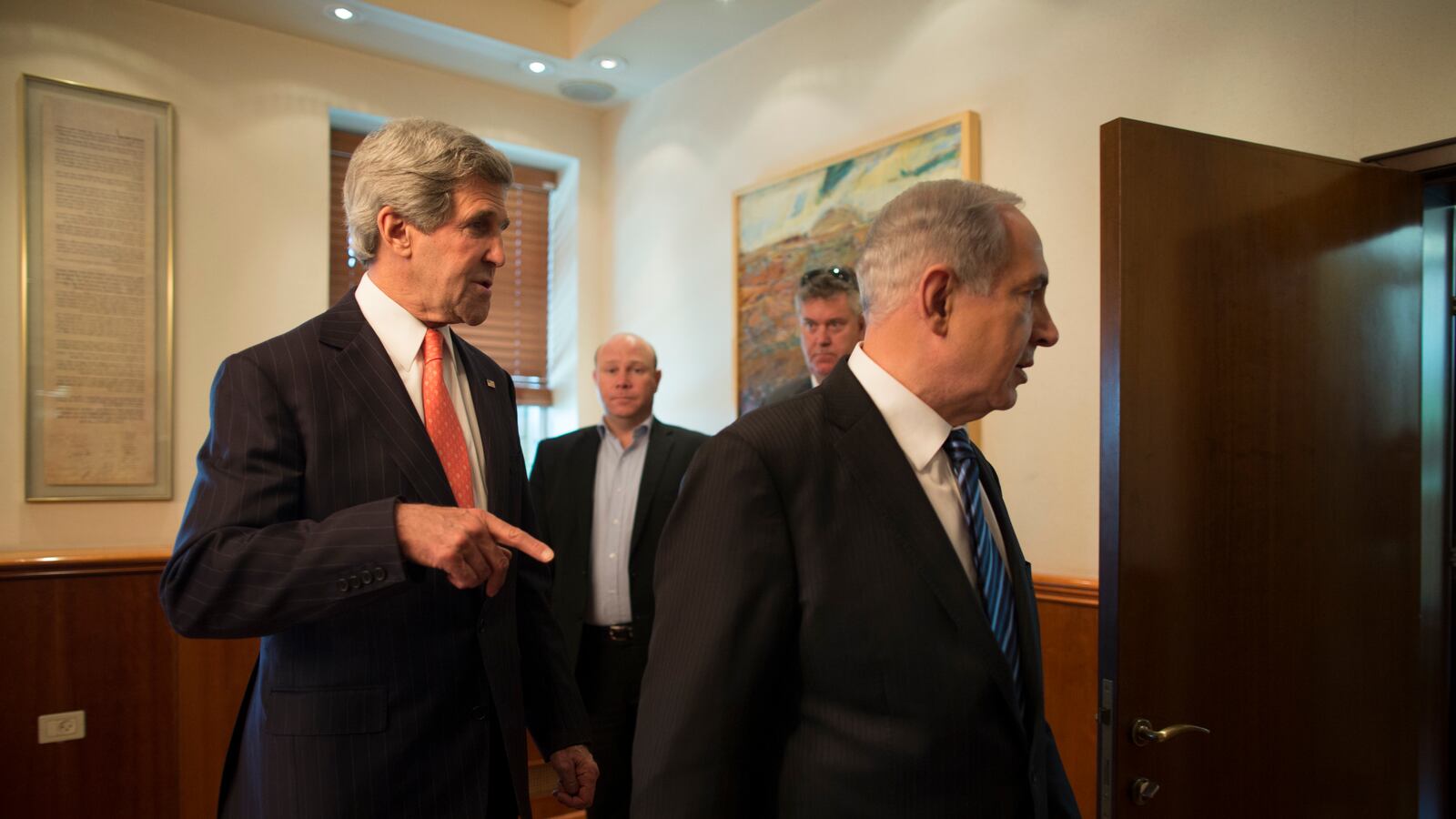In response to a series of Israeli announcements of new settlement activity at various stages of the building process, John Kerry told reporters that he had a “very frank and open, direct discussion of settlements” with Benjamin Netanyahu. According to Israeli and American officials, Kerry told Bibi that the rash of announcements contravened what the Israelis, Palestinians, and Americans had agreed would be the framework for upcoming talks—namely, restraint in settlement building. It sounds mild, but in truth there wasn’t much more Kerry could do at this point. Moreover, by making the point publicly, the Secretary of State was putting Israel on notice that responsibility of failure for talks could well fall on Jerusalem.

Tomorrow is the first scheduled round of actual talks between Israelis and Palestinians. Coming soon after Kerry’s press conference at which he proclaimed the structure of the negotiations, Kerry couldn’t risk forcing the Israelis into a corner just yet. The Netanyahu government is under domestic pressure for having agreed to release 104 Palestinian prisoners, especially because many of the first 26 have been serving sentences for some particularly horrific murders. Kerry must have assumed that the announcement of approval of new settlements was the price he (and the Palestinians) had to pay for keeping Israel at the table, even if he was surprised by the sheer scale of them.
Bibi knows that he has some room to maneuver at home: even while Jewish Home and many members of his own party oppose genuine concessions, other members of his coalition and the opposition have expressed support for the talks. But Kerry understands there’s no point in forcing Bibi to make a choice right now, as that would entail some uncertainty and political instability, however short-lived. There’s no guarantee that in the ensuing shake-up Bibi will be able to cobble together a pro-peace coalition, so why force the issue before the talks have even begun? Nothing is gained from coercing Bibi without anything having even been put on the table.
At the same time, publicly telling the Israelis that their actions on settlements violates the agreement they had with not only the Palestinians but also the Americans brings to mind Bill Clinton’s pointing of the figure at Yasser Arafat as the party responsible for the failure at Camp David. That blame, which began immediately after the summit, helped shape a narrative of Palestinian intransigence and untrustworthiness.
It’s possible that Bibi, particularly in the aftermath of the fight over European Union guidelines on financial awards to groups in the occupied territories, wants to avoid a narrative in which Israel is held responsible for the breakdown of talks and might be seen as isolated. Unlike some of the more radical rightists in his government, he understands that Israel cannot go it alone—or be perceived to be going at it alone—in the international community.
I suspect that once talks begin, and serious efforts are made at compromise (a big “if,” I know), Kerry will feel more comfortable forcing Bibi’s hand on settlements. Since it’s likely that the major blocs will remain in Israel’s hands, Kerry will feel emboldened in demanding that Bibi stop announcing new projects outside of the blocs, and maybe even in outlying Jerusalem neighborhoods.
Until then, public expressing concern over the settlement announcements—which is really just a gently diplomatic way of denouncing them and questioning Israel’s commitment to the peace talks—is the best that Kerry can do in order to maintain the delicate balance he’s crafted to restart negotiations. Unless of course Bibi persists in announcing more and more new settlement projects, in which case he’ll have left Kerry with no choice but to put all the blame on Bibi. And he’d be right.






